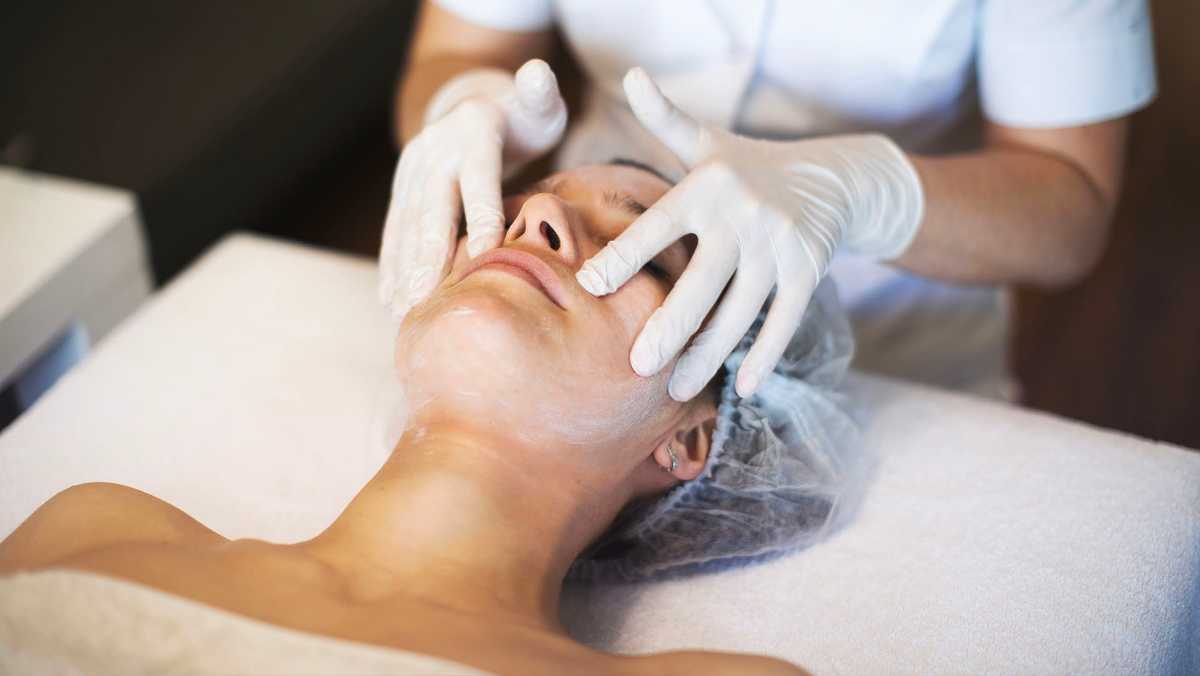Starting your own beauty salon

- Henk Herkink
- How to
- 9 July 2020
- Edited 25 November 2025
- 6 min
- Starting
Are you going to start as an independent entrepreneur in the beauty business? When you open your own beauty salon, you need to arrange all sorts of things. For example, a workspace, registering with KVK, and insurance. Here is everything you have to look out for when you start working as a self-employed beautician
What do you need to do and arrange when starting a business?
Find out with the 'Personal to-do list' on Business.gov.nl. Answer the questions and see the steps that are important in your situation.
All new entrepreneurs have to come up with a name, choose a legal form, take out insurance, and register their business with KVK. This article looks at other topics specifically for beauticians.
Training
You do not need a diploma to start a beauty salon. But it is wise to complete an accredited Beauty Care training course. This can be a vocational education (MBO) course or an industry-recognised course at a private training institute. Then you can be sure that you perform your work in a professional manner. And your clients will know you have the right expertise. With a recognised diploma, you can also join the sector organisation ANBOS or De Huidprofessional.
Training as a beautician usually takes 1 or 2 years. In addition, there are various courses and training programmes you can take after obtaining your diploma. For example, a course in bridal make-up or brow lamination. If you want to specialise, you can obtain recognised specialisation diplomas in areas such as acne treatment, laser hair removal, permanent make-up, and camouflage.
Business Plan
Will your salon generate enough income? Writing a business plan, helps you find whether your plans are realistic. A marketing plan is part of your business plan.
There are almost 20,000 beauty salons in the Netherlands. In your marketing plan, you describe how you will ensure that customers choose your salon. For example, you could specialise in microneedling, laser treatments for skin rejuvenation or tattoo removal.
The number of beauty salons in the Netherlands on 1 January 2021-2025
| 2021 | 17,489 |
| 2022 | 18,191 |
| 2023 | 18,589 |
| 2024 | 19,155 |
| 2025 | 19,474 |
Source: KVK Business Register
Rates
Setting the right rates for your treatments can be tricky. It depends partly on what others charge. Do you want to charge the same, more or less? If you list all your costs, you can calculate the minimum you should charge. List the purchases for your salon, your monthly fixed costs, and fluctuating expenses. Then see what you need to earn to have enough money left over to live on. In an ideal situation, you will have money left over to build up a financial reserve.
Part-time entrepreneurship
You can also start a part-time business as a beautician alongside a permanent job. This gives you a regular income and you are also insured against disability. It is important to check your employment contract to see whether you are allowed to run a side business and to discuss this with your employer.
Location
Many newcomers in the beauty industry start working from home, but you can also choose to offer at-home treatments, rent a chair in a salon, or set up shop in a rental property or your very own building.
A beauty salon at home
Why not start a home business in an empty room that can easily be repurposed? Or - if you want to go bigger - convert your garage into a professional beauty salon? If you will be renovating your space, look into doing so sustainably. There are a number of tax deduction schemes you can use if you do this, such as the and the
Additional benefits of starting a business from home include no travel time, travel expenses, or rental costs. However, there is also a big downside. If you work from home, it can be difficult to escape your job and truly enjoy your free time.
Be sure to check municipal rules on home businesses and to check your mortgage agreement or lease to see if you are allowed to start a business from or near your home.
At-home treatments
You can also choose to offer at-home or on-site beauty treatments. This makes it easier to get started as you do not need a workplace. You can also offer treatments to clients who are unable to travel to you. Include your travel expenses into your (hourly) rate.
Renting or buying a property
If you are looking to rent or buy commercial space for your own beauty salon, check whether it meets all your needs and wishes first. How much space do you need, what equipment will you need, what kind of treatment do you want to offer, and where can you put the waiting room? When looking for a property, take note of the energy label. A low energy label such as A or B means an economical building. Your energy costs will be a lot lower in a well-insulated building.
With the Location Scan (in Dutch), you find information about your target group and competition in a particular municipality or district. This will help you find out whether this location is right for you.
Chair rental
Chair rental is a collaboration between two or more independent entrepreneurs sharing the same commercial space. This approach is a great way to reduce your costs, such as rent and purchasing and marketing costs. If you share a space with other entrepreneurs in the beauty sector such as hairdressers and nail stylists you can offer clients extra services.
Rules and regulations
As a beautician, you will need to keep in mind the following rules and regulations:
Quality registers
The HUIDPRO and the SKIN (both in Dutch) are quality registers for beauticians. If you have the right diplomas and do regular refresher courses, you can become officially registered for certain treatments. Examples of these treatments are: IPL and laser treatments.
Quality, Complaints, and Disputes Act
Check if you need to meet the requirements set out in the Care Quality, Complaints, and Disputes (WKKGZ). This law protects clients if you make a mistake when doing, for instance, IPL or laser treatments.
Permanent make-up
If you have a specialised qualification in permanent make-up, you are allowed to provide these services provided you have a permit from the Municipal Health (GGD). An inspector from the GGD will visit to check your work space.
Botox and fillers
Cosmetic procedures, such as Botox and filler injections, may only be performed by a qualified and competent .
Compensation for customer through health insurance
Health insurers may reimburse clients for some treatments. For example, camouflage therapy, electric hair removal, or acne treatments. However, you must have a diploma to perform the treatment and be registered with one of the quality registers.
Hygiene
Beauticians must comply with hygiene (in Dutch). Some examples:
- Your work area must be clean and well ventilated.
- Instruments should be sterile or properly disinfected.
- You should wash your hands before and after each treatment.
- In treatments where you pierce the skin, gloves are compulsory. For example, permanent make-up or microneedling.
Music in your salon
Do you play music in your salon? Then you need a licence (permission) for music rights. You can find the costs and conditions at mijnlicentie.nl from BumaStemra and Sena (category: Care).
Separating waste
You should always separate the from your business. Think of paper and cardboard from boxes and packaging. But also foils, needles, glass packaging, and textiles should be collected separately. Check the Company waste separation to find out which waste you should separate and how.
Ban on microplastics
Besides rules for you and your salon, there are rules for the products you use. Since 17 October 2023, for example, you are no longer allowed to sell exfoliating creams containing plastic microbeads. In the coming years, the ban on microplastics will apply to more and more beauty products, such as shampoo and make-up.
Opening hours
The Trading Hours states that your salon is allowed to be open Monday through Saturday between 6:00 and 22:00. If you want to stay open outside these hours, you have to request a permit from your municipality.
Sector organisations
Beauty specialists can join sector organisations or De (both in Dutch). Here you can network with peers and attend courses, among other things. You need a diploma recognised by the sector organisations to join.
Covering risks
As an entrepreneur you run more risks than someone in permanent employment. For example, if something goes wrong when you are applying permanent make-up, you are liable for the consequences. Discover what risks you are exposed to and how to limit these. With general terms and conditions, for example, the agreements that apply to your treatments are clear to every customer. Use the terms and conditions provided by one of the sector organisations or draw up your own general terms and conditions.
You can also take out insurance, such as professional indemnity insurance, business liability insurance, and inventory insurance. You can also take out disability insurance.
KVK Insurance Check
Some insurances are compulsory, others are convenient. Which ones do you need? The KVK Insurance Check helps you choose your insurances.
General information for new entrepreneurs
Apart from all the above, new entrepreneurs will also have to:


